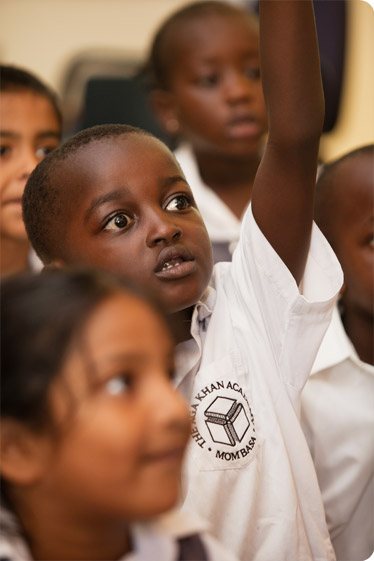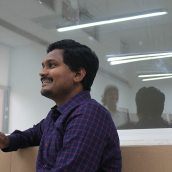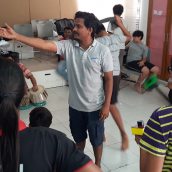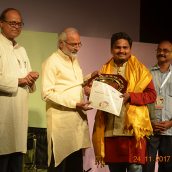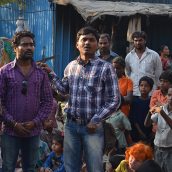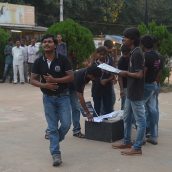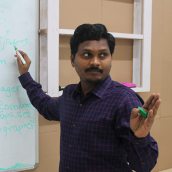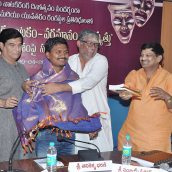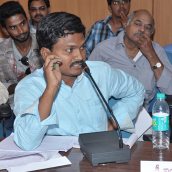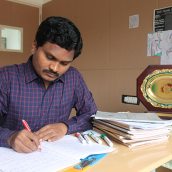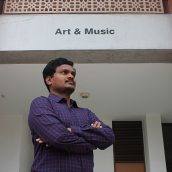Public holiday
Classes resuming
Classes will resume for the new term at the Aga Khan Academy Maputo on 16 January.
International Workers Day
The Aga Khan Academy Maputo will be closed for International Workers Day.
Jazz Concert
The Aga Khan Academy Maputo will be hosting a jazz concert on 3 May. For more details, please contact the Academy.
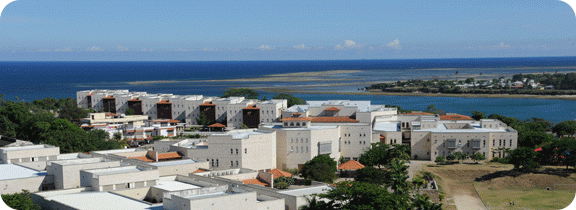
About the Academy
The Aga Khan Academy Mombasa is an International Baccalaureate World School. It is the first in the network of Aga Khan Academies established by His Highness the Aga Khan.
The Academy features state-of-the-art facilities, a multicultural student body, and an experienced team of educators and staff.
We provide students with education of the highest standard in order to prepare them for lives characterised by leadership and service.
Admission to the Academy is means-blind and is based on merit. We consider all eligible students regardless of socio-economic status.
A culture of excellence
As with all the Aga Khan Academies, we are committed to excellence in all aspects of education. This commitment includes the academic curriculum as well as the campus where students live and learn.
Our campus is architect designed and purpose built. It features state-of-the-art classrooms and resource areas, and extensive sports facilities. These outstanding facilities provide an inspiring environment for both students and staff.
At the Academy, we strive to create a balance between academic demands, sports, cultural activities and community life. We challenge our students to be intellectually inquisitive and socially conscious. We also encourage them to respect and appreciate other people’s cultures, social structures, values and beliefs.
A rigorous academic programme
Our academic programme has been developed through the implementation of the widely-recognised International Baccalaureate. The programme is designed to challenge students of all backgrounds.
Our aims for our students include:
- Promoting academic excellence
- Enhancing analytical and study skills
- Building leadership skills
- Fostering an ethical outlook and sense of civic responsibility
- Developing an understanding of global issues
- Encouraging creativity
Experienced local and international teachers lead our programmes. Faculty members are up-to-date with the best educational practices. They are committed both to their students’ learning and to their own continuing professional development.
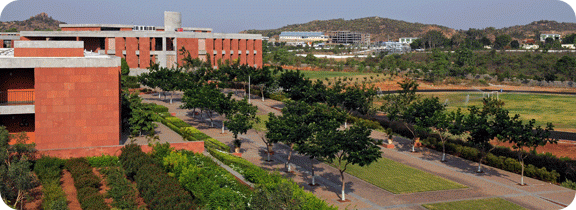
About the Academy
The Aga Khan Academy Hyderabad is an International Baccalaureate (IB) World School and is the second in the network of Aga Khan Academies established by His Highness the Aga Khan.
The Academy features state-of-the-art facilities, a multicultural student body, and an experienced team of educators and staff. We provide students with education of the highest standard in order to prepare them for lives characterised by leadership and service.
Admission to the Academy is competitive and based on student merit, regardless of a family’s ability to pay. We consider all eligible students regardless of socio-economic status.
Mission statement
The following is the mission statement of the Aga Khan Academy Hyderabad:
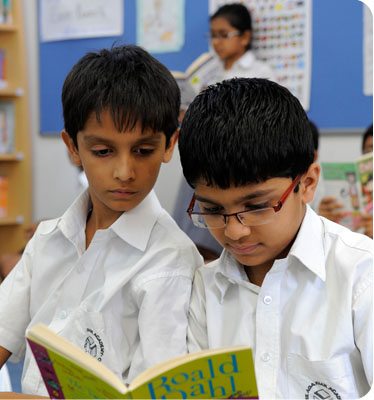 "The Academy will identify and nurture exceptional young people from any background with the potential to become effective, ethical leaders. It will be a joyful community of lifelong, fearless learners who are culturally-rooted and internationally-minded. Academy graduates will be reflective, compassionate, adventurous and creative citizens empowered as stewards to make a positive contribution in a changing world."
"The Academy will identify and nurture exceptional young people from any background with the potential to become effective, ethical leaders. It will be a joyful community of lifelong, fearless learners who are culturally-rooted and internationally-minded. Academy graduates will be reflective, compassionate, adventurous and creative citizens empowered as stewards to make a positive contribution in a changing world."
A culture of excellence
As with all the Aga Khan Academies, we are committed to excellence in all aspects of education. This commitment includes the academic curriculum as well as the campus where students live and learn.
Our campus is architect designed and purpose built. It features state-of-the-art classrooms and resource areas, and extensive sports facilities. These outstanding facilities provide an inspiring environment for both students and staff.
At the Academy, we strive to create a balance between academic demands, sports, cultural activities, and community life. We challenge our students to be intellectually inquisitive and socially conscious. We also encourage them to respect and appreciate other people’s cultures, social structures, values and beliefs.
A rigorous academic programme
Our academic programme has been developed through the implementation of the widely-recognised International Baccalaureate. The programme is designed to challenge students of all backgrounds.
Our aims for our students include:
- promoting academic excellence
- enhancing analytical and study skills
- building leadership skills
- fostering an ethical outlook and sense of civic responsibility
- developing an understanding of global issues
- encouraging creativity.
Experienced local and international teachers lead our programmes. Faculty members are up-to-date with the best educational practices. They are committed both to their students’ learning and to their own continuing professional development.
Chandrasekhar Indla - Holding the baton of Telugu theatre
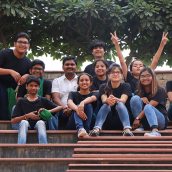 All the world's a stage, Shakespeare famously wrote, and all the men and women merely players. Chandrasekhar Indla, drama faculty at the Academy’s theatre arts department, would take a dim view of such a simplistic description of a stage play. As director, lighting designer, sound technician, mask-maker and writer, Chandra has been a part of hundreds of performances and, talking to him, you would believe that the stage is possibly more than the world, and players perhaps more than merely men and women. “Drama is an important instrument that can build a sense of consciousness in society,” he shares. “There is a need to save and reinvent drama.” For over five years now, he has dedicated his career to introducing children to the world of theatre arts.
All the world's a stage, Shakespeare famously wrote, and all the men and women merely players. Chandrasekhar Indla, drama faculty at the Academy’s theatre arts department, would take a dim view of such a simplistic description of a stage play. As director, lighting designer, sound technician, mask-maker and writer, Chandra has been a part of hundreds of performances and, talking to him, you would believe that the stage is possibly more than the world, and players perhaps more than merely men and women. “Drama is an important instrument that can build a sense of consciousness in society,” he shares. “There is a need to save and reinvent drama.” For over five years now, he has dedicated his career to introducing children to the world of theatre arts.
A prolific academic, Chandra was among highest scorers in the National Eligibility Test, an exam held nationwide by the University Grants Commission (UGC) which qualifies people to teach performing arts at a collegiate level. His work since his first tenure as a master’s student at the University of Hyderabad has been about introducing drama to a young audience. He was among the first members of the university’s Theatre Outreach Unit, created to expose children all over the state to theatre arts. He joined the Aga Khan Academy Hyderabad in 2015 to continue in this effort. “Our Academy is one of the best places where the teacher-student relationship is so strong in terms of respecting each other and sharing thoughts,” he says. Chandra, not a technical direcor for drama at the Academy, was very happy to teach at the Academy because the IB curriculum gives theatre arts the importance of a elective, rather than just tacking it on as a co-curricular activity as other school programmes do.
With two master’s degrees and a PhD on the way, Chandra surprisingly admits he wasn’t very good at school. In fact, he even struggled through his first degree, a bachelor’s in computer science. “I don’t remember any programming today,” he confides. Once Chandra relieved himself of his pursuits in technology and began honing in on theatre, his academic performance drastically improved. He finished his master’s in performing arts with a gold medal from the University of Hyderabad, and went on to earn two prestigious research fellowships from the UGC to write about theatre arts. These fellowships sustained him for nearly six years. “My family was happy to find out I was going to pursue theatre arts, because my paternal uncle is an author, and they thought he could help me.”
Chandra was born in Kanduluru in Andhra’s Prakasam district where his parents worked for daily wages, often at construction sites or in the tobacco fields of of the coastal district. “He was into old, traditional theatre arts,” Chandra says of his uncle. “Today I’m in national theatre festivals. I have more contacts than him,” he adds, laughing. Indeed, Chandrasekhar Indla has become a recognisable name in Telugu literary circles. This began when his final master’s project, a play adaptation of the book Gopathrudu by K.N.Y Pathanjali, became a sensation in theatres across Andhra Pradesh (before the creation of Telangana State). He followed this with another adapted play called Miss Meena, based on the tragicomedy The Visit by Friedrich Dürrenmatt. Ms. Meena was performed over a 100 times statewide, earning Chandra a reputation as tested thespian. Apart from this, Chandra has also spoken and presented about Telugu theatre at international conferences.
“As a professional admirer of drama I would like to hand over the future of drama to the students to take it further,” he says. Since his joining the Academy, our students have held performances across the city, attended several festivals and plays, and most notably, entered the Amaravathi National Theatre Festival in 2017. “I had the freedom to run and develop the department,” he says of being the first drama teacher at the school. “I have used this freedom to develop the students’ abilities in acting, communication, confidence, creativity and thinking skills.” With the addition of George Macpherson to the drama department as of August 2018, the programme has only gained in strength. “We’ve built a whole new teaching strategy together,” Chandra says of his friend and colleague George. “As a practioner, I'm more comfortable teaching the the practical aspects of theatre, whereas George is very good at teaching theory."
Inevitably, Chandra went from adapting literature to the stage to creating literature himself. As of date, he has been published in Telugu literary magazines 12 times, and has a collection of short stories on the way. One of the major motifs in Chandra’s writing is social equality and social reform. At the Aga Khan Academy Hyderabad, where pluralism is one of the tenets of the school’s ethos, Chandra is a person students can look up to who shows these values in his work and personal life. Chandra met his wife Ezhilmathi in 2009 when they were doing their master’s of philosophy in performing arts at Pondicherry University. His area of focus was drama while hers was music. “She taught me Tamil,” he says, “I think that’s where it began.” The two had to convince their parents before they could get married. “My marriage is inter-state, inter-faith, inter-caste,” he laughs. In August 2012, Chandrasekhar and Ezhilmathi were married in a wedding with both Hindu and Christian rituals.
“Drama can build self-confidence in a person. However, most people do not have proper understanding or admiration of drama,” Chandra says. Looking out of his office window at an overcast December morning, Chandra’s thoughts about his art turn bleak. “No one reads scripts,” he says of the culture of literature in the subcontinent. “People will just read Shakespeare as a play, but that is not the case for Telugu literature.” The shields and trophies on his desk gleam in the wintry light. “Maybe this culture of drama will die out one day."
Though the thought is dark, Chandra doesn’t let it get in the way of his work, and rather uses it to fuel his work as a teacher. He knows that many of his students will go on to pursue, say, computer science, but that doesn’t deter him. “I want my students to be good humans who are not only responsible but also sensitive to others’ emotions and culture. Drama needs to be handled more as a legacy and its nuances need to be inherited and passed on generation after generation. This is possible only when I take up the role of a teacher.”
Written by Ajay Sundaram
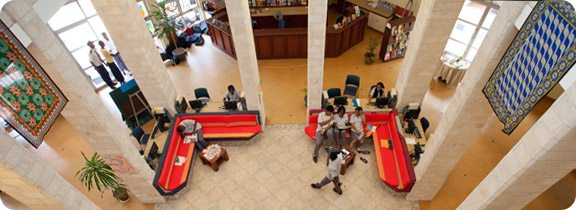
News
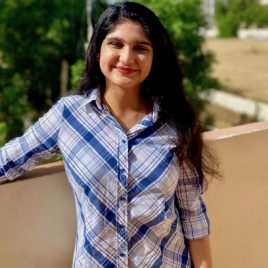
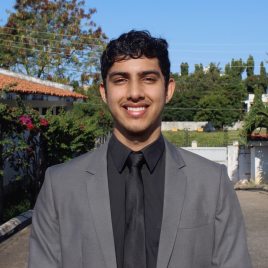

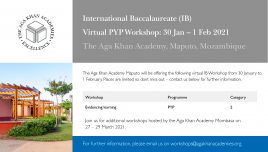
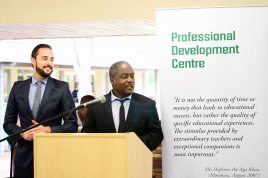


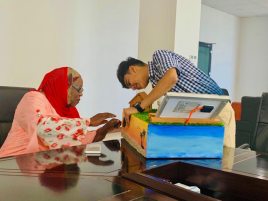

Pages
News









Pages
News









